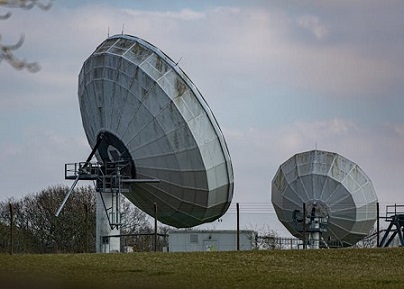Asia-Pacific Signal and Information Processing Association Annual Summit and Conference 2018
12-15 November 2018 • Honolulu, Hawaii, USA
Catch the Big Data Wave in Signal & Information Processing

APSIPA ASC 2018, held from November 12-15 in Honolulu, Hawaii, marked the tenth annual conference hosted by the Asia-Pacific Signal and Information Processing Association (APSIPA). Established in 2009, APSIPA is dedicated to advancing research and education in the fields of signal processing, information technology, and communications. Previous conferences have taken place in key locations across the Asia-Pacific region, including Sapporo, Singapore, Xi’an, Los Angeles, Kaohsiung, Siem Reap, Hong Kong, Jeju, and Kuala Lumpur. The association’s interests span all areas of signal and information processing, from foundational theories and algorithms to security, implementation, and practical applications. APSIPA ASC 2018 offered a rich technical program covering a wide range of topics, including:
- Biomedical Processing and Systems (BIOSIPS)
- Image, Video, and Multimedia (IVM)
- Signal and Information Processing Theory and Methods (SIPTM)
- Signal Processing Systems: Design and Implementation (SPS)
- Speech, Language, and Audio (SLA)
- Wireless Communications and Networks (WCN)
- Data Analytics and Machine Learning
- Deep Learning-based Signal Processing
- Information Forensics and Security
- Signal and Information Processing in Energy and Sustainability
- Signal and Information Processing for the Internet of Things (IoT)
- Signal and Information Processing Education
This event provided an opportunity for researchers, engineers, and practitioners to share their latest findings and explore emerging trends in the field. Special sessions focused on cutting-edge developments and facilitated in-depth discussions on new directions in signal and information processing.
Paper Submission
Authors were invited to submit papers ranging from 4 to 10 pages in length. Submissions were expected to present original research, innovative ideas, or new applications in the field of signal and information processing. The conference offered a platform for authors to showcase their work to an international audience of experts and peers. In addition to the presentation opportunities, accepted papers were included in the conference proceedings, contributing to the broader academic and professional discourse. Participants had the chance to engage with their peers, receive feedback, and collaborate on future research projects.
Keynote Speakers
The APSIPA ASC 2018 featured a distinguished lineup of keynote speakers who are leaders in the fields of signal processing, information technology, and communications. These experts shared their insights on the latest trends, challenges, and future directions in the industry. Each keynote session offered attendees a chance to learn from and engage with some of the most influential minds in the field, providing inspiration and new perspectives on how to advance their own research and projects. Topics covered by keynote speakers included advancements in machine learning for signal processing, innovations in wireless communications, and the role of artificial intelligence in multimedia applications.
Special Session Proposals
The organization of Special Sessions was highly encouraged to enrich the conference program and provide specialized forums for discussing specific topics of interest. Special Sessions were designed to bring together leading researchers and professionals from around the globe to present the latest advancements and discuss the future directions in niche areas of signal and information processing. STEM assignments are something most students are struggling with, but no more need to look for someone to your homework since this trustworthy writing service https://academized.com/do-my-homework is ready to help you right away. Proposals for Special Sessions required detailed outlines, including objectives, topics to be covered, and potential speakers. These proposals were submitted to the Special Session Co-Chair, Dr. Toshihisa Tanaka, and were reviewed for their relevance, timeliness, and contribution to the overall conference goals. Special Sessions provided a unique opportunity for focused discussions and collaborations among experts in specific areas of interest.
Awards and Recognition
APSIPA ASC 2018 recognized the outstanding contributions of researchers and professionals through a series of awards presented during the conference. These awards honored the best papers, presentations, and special sessions, as well as individual achievements in research, innovation, and education. Award winners were selected by a panel of experts based on criteria such as originality, significance, and impact on the field. The awards ceremony celebrated excellence in signal and information processing and highlighted the importance of high-quality research in advancing the industry.
Networking and Collaboration Opportunities
APSIPA ASC 2018 placed a strong emphasis on fostering collaboration and networking among participants. The conference provided various formal and informal opportunities for attendees to connect with fellow researchers, industry professionals, and academic leaders. From networking receptions to discussion panels and special interest group meetings, participants were encouraged to share their ideas, explore potential collaborations, and build relationships that could lead to future research projects and professional partnerships. The event's setting in Honolulu also allowed for unique cultural exchanges and social activities that enhanced the overall experience.
Due Dates | |
|---|---|
| Submission of Proposals for Special Sessions | May 1, 2018 |
| Submission of Regular Papers | June 1, 2018 |
| Submission of Special Session Papers | June 1, 2018 |
| Submission of Proposals for Forum, Panel & Tutorial Sessions | June 15, 2018 |
| Notification of Paper Acceptance | July 31, 2018 |
| Submission of Camera-Ready Papers | September 10, 2018 |
| Author (early-bird) Registration Deadline | September 10, 2018 |
| Tutorial Session Date | November 12, 2018 |
| Summit and Conference Dates | November 12-15, 2018 |